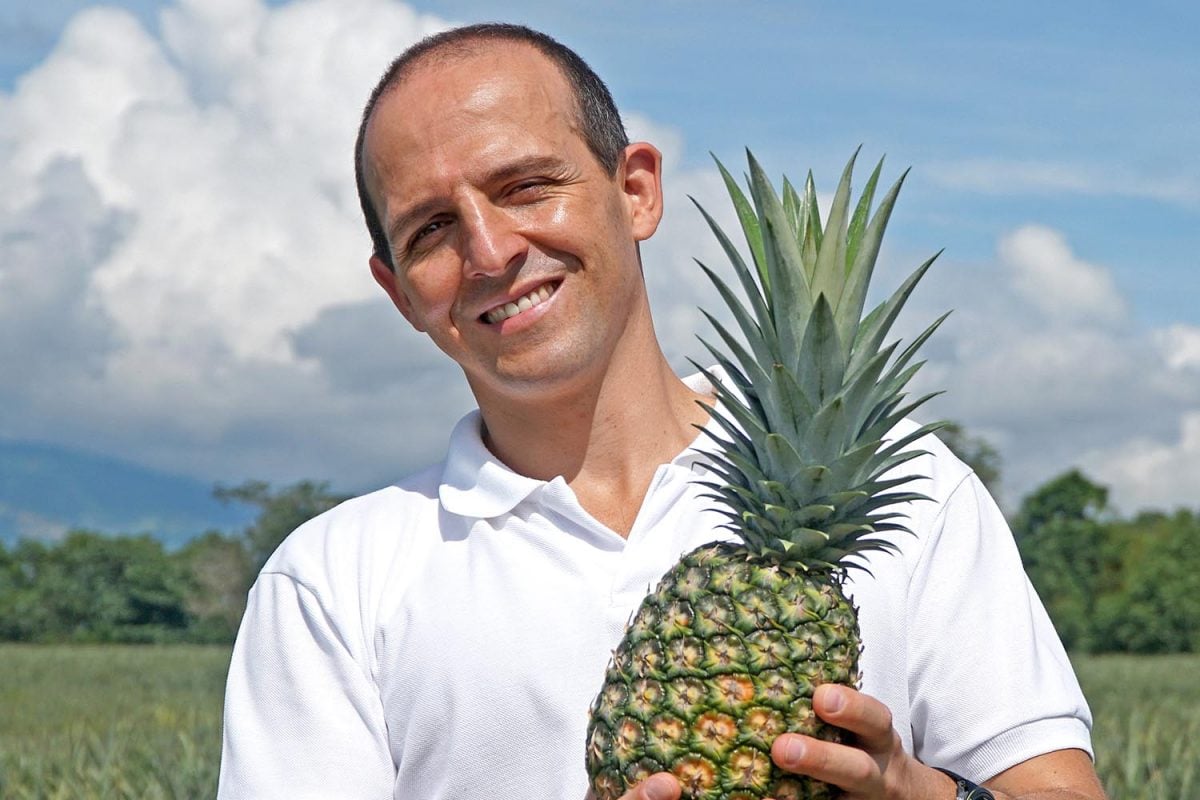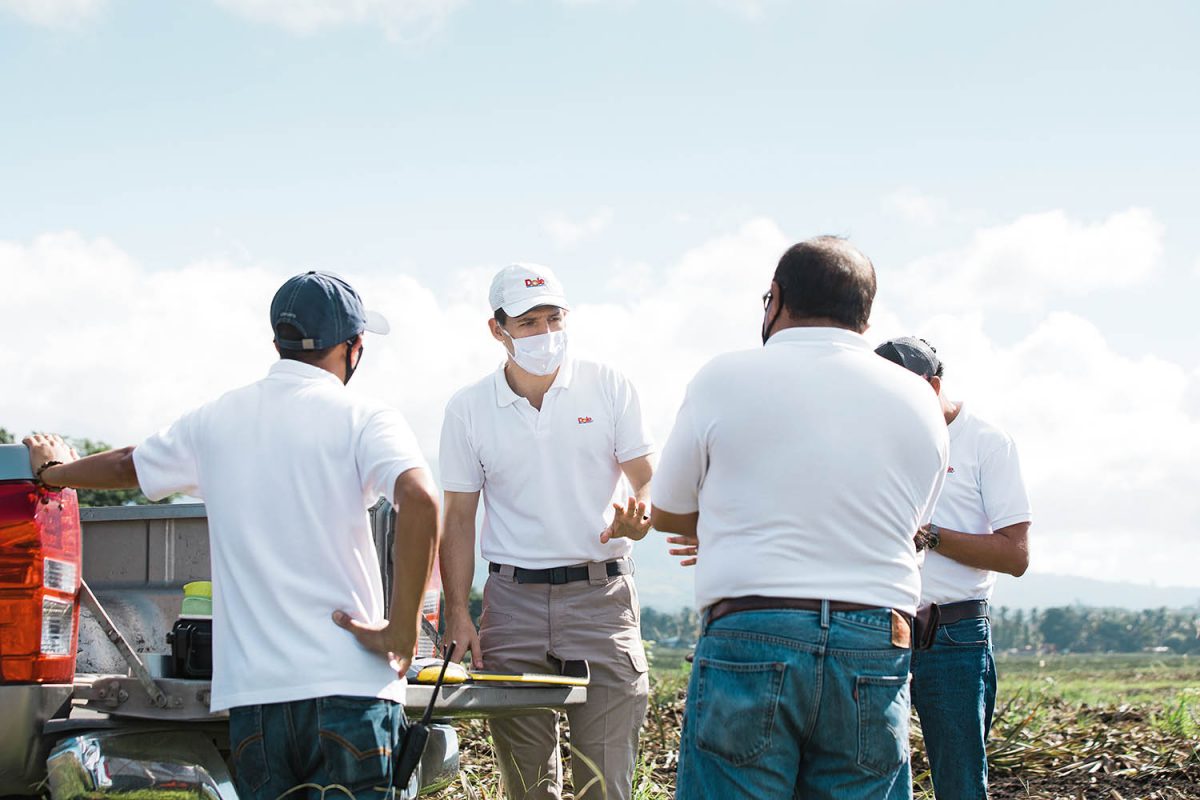The fruits of his labours: Nicholaos Yiannakis
Dole Philippines Managing Director Nicholaos Yiannakis is growing more than pineapples – he is inculcating self-belief and power into an agile workforce.
How do you grow pineapples? That’s the question Managing Director of Dole Philippines (Dolefil), Nicholaos ‘Nick’ Yiannakis couldn’t answer when he arrived in the Philippines with his family, but he didn’t waste a moment in seeking an answer.

Nick joined Dolefil after 16 years with Unilever, firstly in Europe and then in Kenya and Tanzania managing the company’s tea operations."I think your early experiences in life shape you," he reflects.
"I was raised on a farm in Malawi, Africa." If those years with Unilever taught Nick anything, he considers it to be about sustainable change. As he sees it, his role is not to be at the top of a pyramid and have people below him.
"Prior to Dolefil, I had worked in tea and other areas, but it’s really about finding a way to help a community," he says. Nick used his understanding of tea plantations to embed himself in his new circumstances and relied on expert advice from a book called The First 90 Days, by Michael Watkins.
"I followed that book religiously," he attests. "For the first 30 days, I would ask a consistent set of questions horizontally and vertically across the organisation. The next 30 days were about working closer with my team to test my hypothesis of what problems the business is facing, and the opportunities ahead of us. The last 30 days were about bringing it all together with a strategy and – even more important – a strategic implementation plan on which we agree as a team. I said my part is really being there as a helper, not as a commander. I really believe that’s very important."
Agility and trust are the key. These are the main principles in our strategic leadership agenda and our journey going forward.
Nick recalls that they used MCR Consulting, a spin-off of the university of Leuven in Belgium, run by his friend Peter Rosseel, to develop a Strategic Leadership Agenda.
"We asked, ‘Where do we see ourselves in three years’ time? How do we get there? But, more importantly, what are the cultures and the way of working that we’re going to change as a leadership team and as an organisation?’
"Peter Rosseel has a statement – ‘Culture eats strategy for breakfast’. That Strategic Leadership Agenda is not a PowerPoint file you put in a folder somewhere. It becomes almost a way of living as you go forward as an organisation."
This approach has paid dividends in a perceptible corporate culture shift that permeates the whole company. The rewards are tangible – personally and professionally – for everyone.
"We identify an opportunity, choose an agile team of 5–10 people, and say, ‘There are no rules. Don’t breach our code of conduct. You’ve got autonomy to deliver and improve that area,’" he explains.

Nick points to the team’s success in dealing with the COVID-19 pandemic. Immediately, he says, they transformed the way the business adapted to new government legislation, social distancing and sanitising, and arranged transport for employees to move to and from its operations.
"We said, ‘This needs to be delivered,’ and they delivered it," enthuses Nick. "Agility and trust are the key. These are the main principles in our Strategic Leadership Agenda and our journey going forwards. We use the word agility a lot as a business. COVID-19 showed how the team will pull together and do whatever it takes to secure business continuity, the health of our employees and the community as well."
Dolefil is moving to a culture of ‘see and do, we trust you’, says Nick, and if things go wrong, that’s a lesson; they will then work together to overcome any issues. "We’re seeing that people are thinking much more entrepreneurially and are empowered," he points out.
"Everyone lives with the consequences of their actions. You can’t argue with that. Some organisations make too many boxes within the company, and then agility and empowerment go out the window. They become arguments of who’s to blame rather than how we make this work."
This overarching policy of responsibility stems from advice given to Nick years ago by his mentor at Unilever, Simon Atkinson. For Nick, the memory of Simon’s impact on his life is an emotional one.
"‘I trust you,’ he said to me," he recalls "That was his advice for being empowered and doing what it takes to get the job done." Away from the office, Nick enjoys what he considers to be a much tougher and more important role – that of a parent. It’s one he obviously relishes.
"We chose to have a family for the reason of bringing up a family," he says. "I can do my job – it’s quite an easy thing to do, really. But to raise children, to be there for them so they enjoy life as best they can – I think that is a much bigger job."
Proudly supported by: